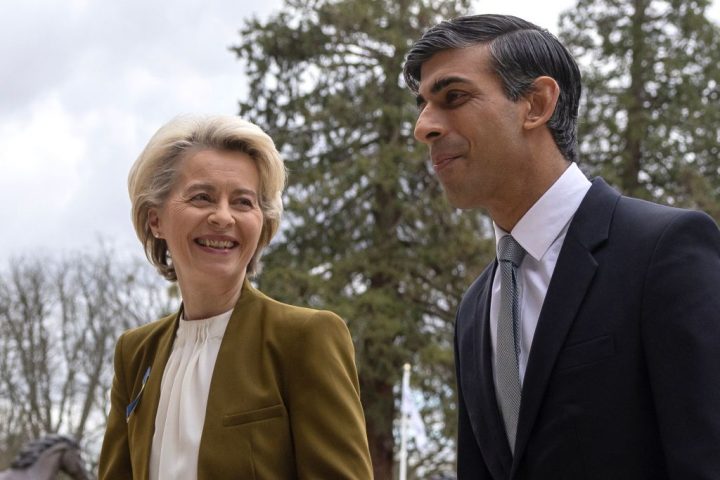A lot of the grand choreography around today’s Northern Ireland Protocol deal is designed to make it much harder for critics to cause chaos. There’s the meeting in Windsor between the King and Ursula von der Leyen, which Downing Street is insisting was something the Palace wanted, rather than being requested by Rishi Sunak.
The guaranteed way of making a revolt on anything worse is to deny MPs the chance for them to vote on it
I’m told that the King is deeply personally interested in this agreement, while the No. 10 official line is that it is ‘not uncommon for His Majesty to accept invitations to meet certain leaders’. It does also lend a weightiness and air of finality to today’s agreement, something Sunak will be hoping will make it harder for critics to draw out the argument much longer. Similarly, the location of the talks in Windsor – even if it is not officially badged the ‘Windsor Agreement’ – is a way of adding a sense of occasion.
The framing from many in government is that this agreement will allow Britain to get on with building its profile as a constructive partner with the European Union rather than being held back by this ongoing dispute. There is a feeling in government that the post-Brexit relationship between EU and UK has largely matured and that Britain had been leading on the response in Europe to the invasion of Ukraine. An agreement that really draws the line under the bitterness and confusion of the past few years is very much in the interests of both sides but particularly those wanting to make a success of Brexit.
All that said, there is a difference between choreography and MPs dancing to any kind of tune. So far ministers have been carefully vague on what kind of vote MPs will get on this agreement. Sunak has merely said that the House will be able to ‘express’ its view but Dominic Raab pointedly refused to give any further detail when quizzed yesterday.
It would be a mistake for the Prime Minister to try to stage manage the parliamentary response to the agreement. In fact, the guaranteed way of making a revolt on anything worse is to deny MPs the chance for them to vote on it. Not only will they find a way to hold a vote, whether through the standing orders of the House or using an Opposition Day slot, they will also feel disrespected and more inclined to give Sunak a bloody nose.
With the support of Labour, the Prime Minister knows he will get an agreement past MPs anyway. But he also wants to do the least damage to his authority over the Conservative party in the long term – not needlessly angering backbenchers is an important part of that.







Comments